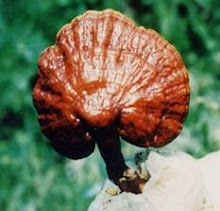
Spirulina Powder Profile
Also known as
Arthrospira platensis, Blue Green Algae (a misnomer), BGA, and Cyanobacteria
Introduction
For centuries, the native peoples of Mexico, Africa and Asia have eaten spirulina and made it one of their major sources of protein. The blue green algae is plentiful in lakes and inland bodies of water that are warm and alkaline. The plant's chemical makeup is 65% amino acids, including the essential fatty acid gamma linolenic acid (GLA). The high concentration of amino acids has made spirulina a popular nutritional supplement for those who are unable to obtain sufficient calories and protein through diet alone, particularly athletes who burn calories at a high rate. In addition to amino acids, spirulina is also a rich source of numerous other nutrients, including many essential vitamins and minerals. Test tube and animal studies suggest that spirulina boosts immune system function, which may make it useful as an antiviral and anticancer supplement. Finally, in vitro and animal studies suggest that spirulina may be useful in blunting allergic reactions. Research into the medical benefits of spirulina is ongoing, but there is no doubt about its nutritional benefits. Among other things, it contains as much iron as equivalent weights of beef.
Constituents
B complex vitamins, beta-carotene, vitamin E, carotenoids, manganese, zinc, copper, iron, selenium, gamma linolenic acid
Parts Used
Dried and processed algae
Typical Preparations
Powdered and taken as a capsule, incorporated into drinks and smoothies, and sometimes as a liquid herbal extract.
Summary
While spirulina has its roots in the ancient, modern research is proving more and more each day that it is a thoroughly modern supplement that could be a solution to many of the world's ills. Among the positive research that has been done involving the uses of spirulina are studies of children who were exposed to radiation at the site of the Chernobyl disaster. Those studies seemed to indicate that those children treated with spirulina had boosted immune system function despite damaged bone marrow. In vitro studies suggest that spirulina increases the production of antibodies and cytokines that ward off infection and chronic illnesses. While more study is needed to define precisely what actions spirulina may provoke in the body, there is a remarkable lack of harmful side effects or suggestions that there are any drawbacks. Even if it is used only for its nutritional content, spirulina is a valuable addition to the diet.

Well that’s really great and I appreciate it. Thanks for taking the time to discuss this, I feel strongly about it and love learning more on this topic.Great work on spirulina powder on your website.For more information visit at Spirulina Powder
ReplyDeletewww.rainforestfoods.co.uk
I have read above blog on Spirulina powder.its wonderful item for health. Great work on this website.Hope to see the next blog soon on spirulina Powder .
ReplyDeleteThese plants are loaded with thousands of macronutrients, micronutrients, nutrients, natural vitamins and proteins, such as all the essential aminoacids, which work in great collaboration to apply their important healthy benefit. In an era where the way of life are traumatic and a regular diet comprises mainly of the intake of highly developed unhealthy foods beyond capacity with cheap empty calorie.
ReplyDeleteSpirulina Powder Benefits
Hi this one is great and is really a good post. I think it will help me a lot in the related stuff and is very much useful for me. Very well written I appreciate & must say good job..spirulina powder
ReplyDelete